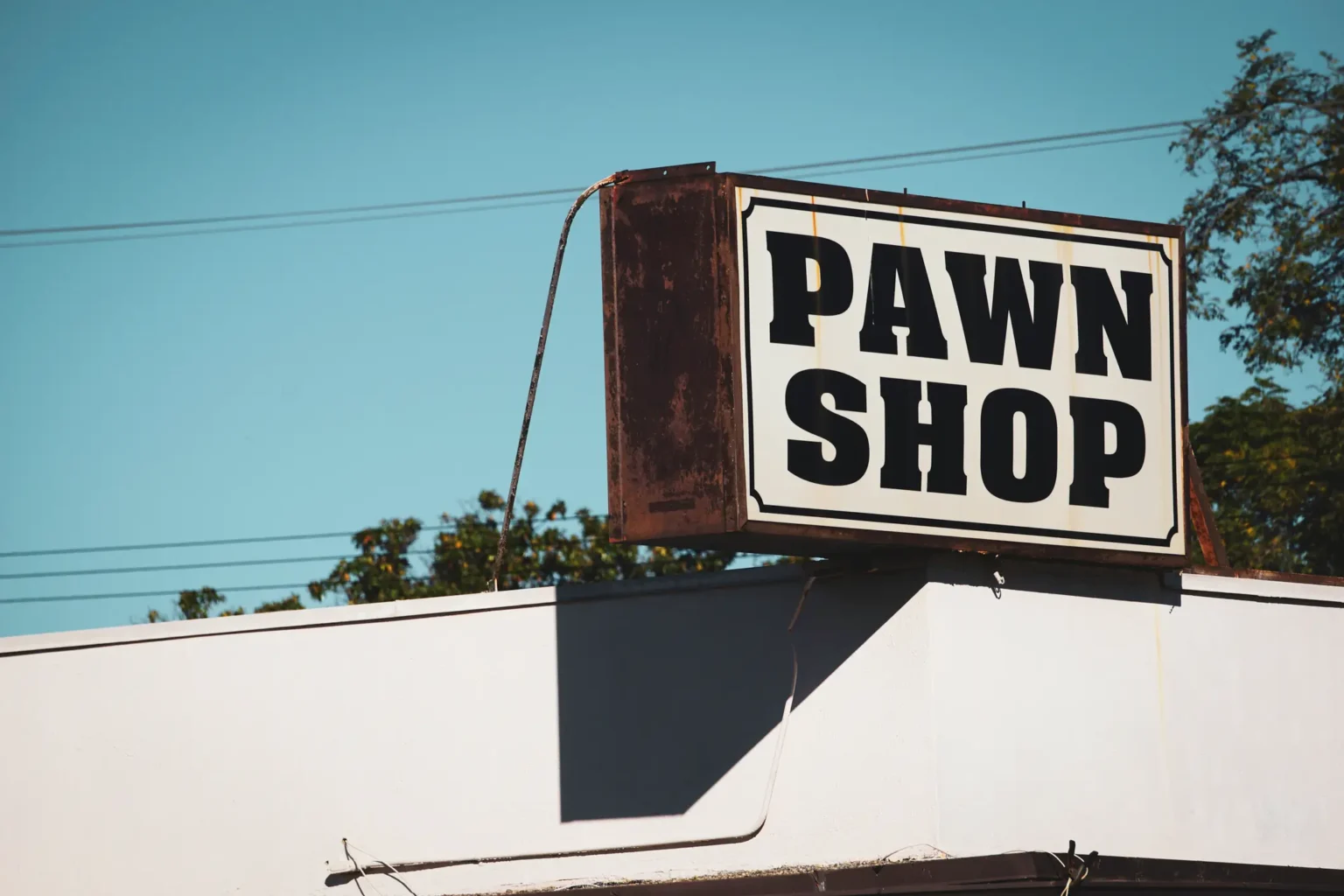Selling a firearm can be a complex process. It’s not just about finding a buyer.
You need to consider legal requirements, fair pricing, and safety precautions. One common option is to sell your gun to a pawnshop.
But is this the best choice for you?
This guide aims to answer that question. We’ll delve into the intricacies of selling firearms to pawnshops. We’ll also explore alternative methods of selling your gun.
Whether you’re a seasoned firearms enthusiast or a novice shooter, this guide will provide valuable insights. Even history teachers seeking to enrich their lessons with real-world examples will find this information useful.
So, should you sell your gun to a pawnshop? Let’s find out.
Understanding the Basics of Selling Firearms
Selling a firearm involves more than just handing over your gun. It’s crucial to understand the legal requirements involved. These regulations vary by state and can impact how, where, and to whom you sell.
The first step is to differentiate between selling and pawning a firearm. Selling means you permanently transfer ownership, while pawning is a temporary loan against the firearm’s value. Understanding this distinction helps in making an informed decision.
Pawnshops each have their own reputation and policies regarding firearms. Some may specialize in guns, offering fair prices and knowledgeable staff. Others might lack expertise in assessing firearm value, leading to less favorable transactions.
Before selling, it’s wise to research the pawnshop. Look for reviews or ask fellow enthusiasts for recommendations. Ensure the pawnshop has a good track record with firearms to prevent any potential issues.
In summary, here are some key points to consider:
- Understand state and federal legal requirements
- Know the difference between selling and pawning
- Research the pawnshop’s reputation and firearm policies
By keeping these basics in mind, you’ll be better prepared to navigate the selling process confidently and legally.
Preparing Your Firearm for Sale
Before selling your firearm, it’s important to ensure it’s in the best possible condition. Cleaning and maintaining your firearm not only makes it more appealing but can also increase its value. A well-maintained gun shows potential buyers or pawnshops that you have taken good care of it.
Pay attention to all parts of your firearm, including the barrel, stock, and firing mechanism. Use appropriate cleaning tools and solutions for the best results. A firearm in excellent working order will attract higher offers and can make negotiations smoother.
Next, gather all related accessories and documentation. Items like scopes, cases, or original packaging can enhance the sale’s appeal. Documentation such as the original purchase receipt, owner’s manual, and maintenance records can also add credibility and value to your offer.
Having a comprehensive list of accessories and documentation can make a significant difference. Here are essential items to include:
- Original purchase receipts
- Maintenance and repair records
- Accessories (scopes, holsters)
- Original packaging and manuals
Assessing your firearm’s fair market value is a critical step. Understanding the value helps you negotiate effectively and ensures you receive a reasonable offer. Research prices for similar models and conditions online or consult a professional appraiser if uncertain about your gun’s worth.
Keep in mind that demand and market trends can affect value. A well-researched price point gives you leverage during negotiations and can prevent undervaluing your firearm. Being well-prepared means you’re more likely to achieve a favorable outcome.
In summary, a clean, well-maintained firearm with all relevant accessories and proper valuation is more likely to attract interested buyers. Taking these preparatory steps ensures you’re positioned to maximize your returns when selling to a pawnshop or any other potential buyer.
The Pawnshop Experience
Selling a gun to a pawnshop comes with its own set of unique benefits and challenges. One major advantage is the ability to receive instant cash for your firearm. This can be especially appealing if you’re in need of immediate funds or prefer a quick transaction without delays.
However, keep in mind that pawnshops are businesses aiming to resell items at a profit. This means their initial offers might be lower than the fair market value, as they account for resale margins. Being prepared to negotiate is key to securing a better price for your firearm.
Negotiation can be a straightforward process if you’re armed with the right information. Present the pawnshop with any valuation research or appraisals to justify your price point. Be polite yet firm, and be prepared to walk away if the offer doesn’t meet your expectations.
Additionally, pawnshops must adhere to strict regulations when purchasing firearms. This includes conducting thorough background checks on sellers. Expect to provide identification and fill out necessary documentation to ensure compliance with both state and federal laws.
Being aware of the legalities involved can save you time and prevent misunderstandings. Ensure you bring all required documents, such as proof of ownership, to expedite the process and demonstrate transparency. Preparation reduces stress and streamlines your pawnshop experience.
Alternatives to Pawnshops
If you’re considering options beyond pawnshops, various alternatives can offer flexibility and possibly better financial returns. Selling online is a popular choice, providing access to a vast audience of potential buyers. Platforms dedicated to firearms sales can connect you with enthusiasts seeking specific models or features.
Online sales, however, come with their own considerations. Compliance with state and federal regulations is crucial. This includes understanding shipping and transfer laws, which can vary significantly by location. Some platforms may offer integrated FFL (Federal Firearms License) services to facilitate legal transfers, easing this burden for you.
Online Selling Platforms
- Gun Broker: A popular auction site for firearms.
- ArmsList: Classified ad site specifically for guns.
Selling to a local buyer can also be appealing. Local transactions often allow for face-to-face meetings, negating shipping costs and logistics. They provide a personal touch that can build trust more quickly than online interactions. However, remember the necessity for background checks to remain compliant with laws governing private sales.
Consignment is another viable route, where local gun stores sell your firearm on your behalf. This option might take longer but can yield higher returns. They often take a small commission but use their expertise and customer reach to secure higher sales prices.
Benefits of Local Sales and Consignment
- No shipping costs
- Builds local community ties
For those with high-end or collectible firearms, specialty buyers like Luxus Capital offer yet another alternative. They focus on luxury and rare guns, potentially offering higher prices than general avenues. Their expertise ensures a knowledgeable assessment of your firearm’s value, potentially maximizing your return.
While these options offer notable advantages, they require careful consideration. Online platforms may incur fees that cut into profits. Local sales demand familiarity with applicable laws to avoid legal pitfalls. Consignment and specialty buyers might require patience as you wait for the right buyer willing to meet your price.
Consider factors like speed of sale, privacy concerns, and personal preferences when deciding the best fit. It’s essential to weigh these options against your specific needs and priorities. By exploring these alternatives to pawnshops, you can find the best method tailored to your situation.
Each alternative presents its own set of benefits and challenges, affecting the overall experience and outcome of your sale. Evaluating them thoroughly will help you make the most informed decision possible, ensuring you achieve a satisfactory result when parting with your firearm.
Financial and Emotional Considerations
When selling a gun, financial factors can significantly impact your decision. Pawnshops often provide the convenience of instant cash, but they may offer lower prices than other selling methods. This is because pawnshops must account for resale potential and overhead costs.
Nevertheless, the lower offer might be worthwhile if you need quick cash. It’s important to weigh this against other selling methods, which may offer better returns but require more time and effort. Weighing the pros and cons of each method can guide you to the best decision.
Selling a firearm also involves emotional considerations. Guns often carry sentimental value, passed down through generations or acquired through significant life events. Selling such an item requires careful thought about its emotional significance.
Finally, tax implications should not be overlooked. Depending on your location, selling a firearm might impact your tax status. Understanding the potential tax obligations before you proceed with the sale can prevent future surprises.
Ultimately, balancing financial needs with emotional ties and tax responsibilities is crucial. Understanding each facet ensures you make a decision that aligns with both your financial goals and personal values. Thoughtful consideration of each aspect can ensure a satisfactory outcome for all involved.
Historical and Collectible Firearms
Firearms with historical significance can be particularly valuable. Collectors often seek out these pieces for their stories and craftsmanship. Each gun can represent a moment in history, making it a prized addition to a collection.
Understanding what makes a firearm collectible is essential. Factors include rarity, condition, and historical relevance. A gun that played a role in a significant battle or was owned by a notable figure will likely fetch a higher price.
The timing of your sale can influence its success. The firearms market is subject to fluctuations, often driven by seasonality and trends. Demand may peak during certain times of the year, such as hunting season or during historical anniversaries. Being aware of these patterns can optimize your selling strategy.
Moreover, monitoring market trends is crucial for maximizing value. Current events, technological advancements, and changes in gun laws can all impact demand. Keeping an eye on these factors helps you gauge when to sell to achieve the best possible price. By understanding the market and the unique aspects of your firearm, you can make informed decisions about its sale.
Safety, Scams, and Ethical Selling
Safe handling and transport are critical when selling firearms. Always ensure your gun is unloaded before moving it. Use a secure case for transportation to prevent accidents.
Scams pose a risk in firearm sales, especially online. Verify the identity of potential buyers before engaging in any transaction. Be cautious of offers that seem too good to be true—they often are.
Ethical considerations play a significant role in responsible selling. Consider the impact of selling your firearm to an unfit buyer. It is essential to adhere to laws and uphold ethical standards to prevent firearms from falling into the wrong hands.
Always prioritize transparency and honesty when describing your firearm. Provide accurate information about the gun’s condition and history. Ethical selling not only maintains your reputation but also protects the community by ensuring a safe transaction.
Conclusion: Making an Informed Decision
Selling a gun to a pawnshop offers quick access to cash and convenience. However, understanding the process and alternatives is crucial. Consider legal requirements, prepare your firearm thoroughly, and research pawnshop reputations.
Evaluate all your options, such as online platforms and specialty buyers. These could provide more competitive prices, depending on your gun’s condition and market trends. Assess both financial and emotional factors before making your choice.
Ultimately, the decision depends on what best meets your needs and circumstances. Whether through a pawnshop or another avenue, informed choices ensure a smoother selling experience and peace of mind.
FAQs About Selling Guns to Pawnshops
When considering selling your firearm to a pawnshop, you might have questions. Here are some common inquiries and clear answers to guide you.
- What documentation is needed? A government-issued ID and proof of ownership are typically required.
- How is the gun’s value determined? Value is based on condition, rarity, and current market demand.
- Can I get a higher price elsewhere? Private sales or specialty buyers might offer more for rare models.
- Are there legal considerations? Yes, ensure compliance with federal and state firearm laws.
These answers should provide a solid starting point. For more detailed advice, consult local laws and speak to pawnshop experts directly.









